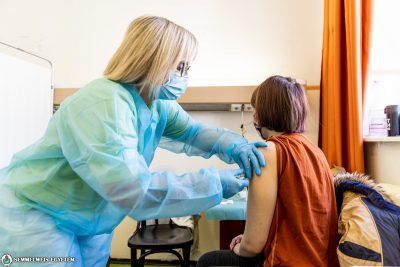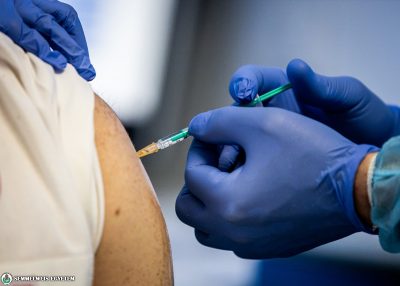75 countries, 200 researchers and several international and national organizations participate in the project studying the physical and mental effects of the coronavirus and the epidemiological situation on well-being. In Hungary the study is led by Dr. István Bitter, professor emeritus of Semmelweis University’s Department of Psychiatry and Psychotherapy.
 While the nationwide, representative coronavirus screening programme was launched on 1st May to give an accurate picture of extent of the virus in Hungary, the Collaborative Outcomes study on Health and Functioning during Infection Times (COH-FIT) was also launched, which is an international survey focusing on the physical and mental effects of the virus on well-being. The online survey has been available since 1st May 2020 and it is also available in Hungarian.
While the nationwide, representative coronavirus screening programme was launched on 1st May to give an accurate picture of extent of the virus in Hungary, the Collaborative Outcomes study on Health and Functioning during Infection Times (COH-FIT) was also launched, which is an international survey focusing on the physical and mental effects of the virus on well-being. The online survey has been available since 1st May 2020 and it is also available in Hungarian.
“The online and anonymous survey takes about 30-35 minutes to complete. It is made up of three parts and questions related to demographics, exposure to the coronavirus, physical and mental well-being, social relations and activities have to be answered. The questionnaire asks about feelings, thoughts and conditions before the coronavirus and during the current situation to assess the changes the pandemic has brought into our lives.”, said Dr. István Bitter, professor emeritus of the Department of Psychiatry and Psychotherapy and leader of the project in Hungary.
The project can not only help reducing the adverse effects of the current coronavirus epidemic and help prevent such consequences in case of similar events in the future, but may provide data that could be useful in designing interventions to prevent somatic and mental health problems triggered or exacerbated by the epidemic.
“The types of events that affect many of us and increase mortality rates have serious physical and mental consequences. Earlier, in case of natural disasters it had been observed that already existing chronic illnesses and mental problems got worse in many cases, and in others such illnesses were diagnosed. This is also a rare occasion when those affected can make a statement about their own condition and the changes that have occurred in their lives and their physical and mental functioning. Healthcare workers are more affected by the epidemic and now they can anonymously make a statement of their own condition.”, said Dr. István Bitter explaining why it is so important to study this aspect of the pandemic as well.
 According to Dr. István Bitter not only the number of respondents is important, but the time when the questionnaire is filled out: it is essential to have as many people answer the questions as soon as possible. COH-FIT assess the conditions before the restrictions by asking about characteristics that were present two weeks earlier. However, restrictions are lifted at different times in the capital city and in the countryside, so it is possible that by the time the survey reaches people, the questions related to the previous two weeks will no longer reflect the conditions before the restriction was lifted.
According to Dr. István Bitter not only the number of respondents is important, but the time when the questionnaire is filled out: it is essential to have as many people answer the questions as soon as possible. COH-FIT assess the conditions before the restrictions by asking about characteristics that were present two weeks earlier. However, restrictions are lifted at different times in the capital city and in the countryside, so it is possible that by the time the survey reaches people, the questions related to the previous two weeks will no longer reflect the conditions before the restriction was lifted.
“The more people take part in the survey, the better we can be prepared to prevent and fight the adverse effects of the epidemic on mental and physical health.”, he said.
The COH-FIT project involves 200 researchers and several international and national organizations. Sponsors include the Zucker School of Medicine at Hofstra/Northwell (New York, NY, USA), the Feinstein Institute for Medical Research (New York, NY, USA), the Department of Neurosciences at the University of Padua and the Preventing Mental Disorders and Mental Health Promotion (PMD-MHP) Network Group of the European College of Neuropsychopharmacology (ECNP). Over 9,600 participants from 75 countries have taken the survey so far.
Ádám Szabó
Photo: Attila Kovács – Semmelweis University; COH-FIT
Translation: Ágnes Raubinek


